Founding Members
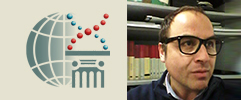 President International Network of Biolaw. M.A. (Bio.), Ph.D. (Phil.), PosDoc (Bio.), Georgetown University, USA. PosDoc (Law), Washington College of Law, USA. He has been Adjunct Research Scholar, Kennedy Institute of Ethics, Georgetown University, Resident Professor, Center for Clinical Bioethics, Georgetown University, Associate Professor of International Human Rights, The Washington Center for Internships and Academic Seminars, Adjunct Professor of Bioethics and Theories of Democracy and Human Rights, American University, USA, and Adjunct Professor of Bioethics and Research Ethics, George Mason University, USA. Professor, Universidad del Desarrollo, and Professor of Moral Philosophy and Biolaw, School of Law, University of Chile.
President International Network of Biolaw. M.A. (Bio.), Ph.D. (Phil.), PosDoc (Bio.), Georgetown University, USA. PosDoc (Law), Washington College of Law, USA. He has been Adjunct Research Scholar, Kennedy Institute of Ethics, Georgetown University, Resident Professor, Center for Clinical Bioethics, Georgetown University, Associate Professor of International Human Rights, The Washington Center for Internships and Academic Seminars, Adjunct Professor of Bioethics and Theories of Democracy and Human Rights, American University, USA, and Adjunct Professor of Bioethics and Research Ethics, George Mason University, USA. Professor, Universidad del Desarrollo, and Professor of Moral Philosophy and Biolaw, School of Law, University of Chile.
He has written 13 books, published in English and Spanish in USA, U.K., Germany and Latin America, as well as over 65 papers, published in international journals. He has received important distinctions, such as the International Academic Career Award given by the University of Buenos Aires, Argentina, for his contribution to biolaw and health law in Ibero America.
He is considered one of the most important international authorities in the field of biolaw, and his contribution to the development of this field’s epistemology has been very relevant in the last years.
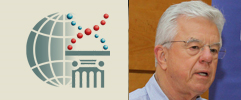
Senior Research Scholar, Professor of Philosophy, Kennedy Institute of Ethics, Georgetown University, USA. He participated in the National Commission for the Protection of Human Subjects of Biomedical and Behavioral Research, and is the main author of the Belmont Report (The Belmont Report: Ethical Principles and Guidelines for the Protection of Human Subjects of Research), the first document that identified and defined principles and deliberative procedures for the protection of human subjects of biomedical research. Professor Beauchamp is, along with James Childress, the creator of bioethical principlism and the author of the seminal book, internationally acclaimed, Principles of Biomedical Ethics. He is a prolific researcher and has published in the most prestigious journals in the world. His ideas are studied in practically all bioethics courses in USA and Ibero America. He is considered for the international academic community one of the most important and influential bioethicists in the world.importante e influyente del mundo.
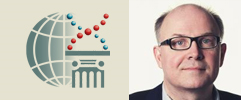 Associate Professor, Department of Communication, Business and Information Technologies, Roskilde University, Denmark. Pioneer of biolaw in the world. He is author, along with Peter Kemp, of the book Basic Ethical Principles in European Bioethics and Biolaw, the result of a joint work of several scholars and intellectuals of European Community. Professor Rendtorff was, along Kemp, the first scholar in offering an epistemological configuration for biolaw. He speaks and writes Danish, German, English and French, and has written and published papers in those four languages. He is member of the organizing committee of the World Congress of Philosophy, and beyond his relevant work in the areas of business ethics, philosophy of law and hermeneutics, he is a world authorized voice in biolaw.
Associate Professor, Department of Communication, Business and Information Technologies, Roskilde University, Denmark. Pioneer of biolaw in the world. He is author, along with Peter Kemp, of the book Basic Ethical Principles in European Bioethics and Biolaw, the result of a joint work of several scholars and intellectuals of European Community. Professor Rendtorff was, along Kemp, the first scholar in offering an epistemological configuration for biolaw. He speaks and writes Danish, German, English and French, and has written and published papers in those four languages. He is member of the organizing committee of the World Congress of Philosophy, and beyond his relevant work in the areas of business ethics, philosophy of law and hermeneutics, he is a world authorized voice in biolaw.
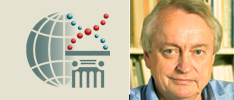 Professor Emeritus, Department of Education – Research Program for Education and Philosophy, Aarhus University, Denmark. Among other areas in which he has worked and researched, such as, hermeneutics and environmental ethics, he is also a pioneer of biolaw in the world. He is the author, along with Jacob Dahl Rendtorff, of the book Basic Ethical Principles in European Bioethics and Biolaw, the result of a joint work of several scholars and intellectuals of European Community. Professor Kemp was, along Rendtorff, the first scholar in offering an epistemological configuration for biolaw. He is a great researcher who dominates several theoretical areas and has published about 300 papers in international journals. Only in 2013, for instance, Peter Kemp published 17 papers, all of them in indexed international journals. He is a world renowned voice in biolaw.
Professor Emeritus, Department of Education – Research Program for Education and Philosophy, Aarhus University, Denmark. Among other areas in which he has worked and researched, such as, hermeneutics and environmental ethics, he is also a pioneer of biolaw in the world. He is the author, along with Jacob Dahl Rendtorff, of the book Basic Ethical Principles in European Bioethics and Biolaw, the result of a joint work of several scholars and intellectuals of European Community. Professor Kemp was, along Rendtorff, the first scholar in offering an epistemological configuration for biolaw. He is a great researcher who dominates several theoretical areas and has published about 300 papers in international journals. Only in 2013, for instance, Peter Kemp published 17 papers, all of them in indexed international journals. He is a world renowned voice in biolaw.
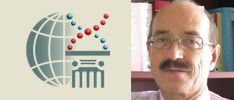 Catedratic of Criminal Law, Universidad del País Vasco. Director, Interuniversitary Chair of Law and Human Genome, Universidad de Deusto and Universidad del País Vasco. He has been Professor of Law, Universidad de Zaragoza (1974/1987), Founder and Director, Center of Criminological Studies (1990/1996) and Dean School of Law (1991-1994), Universidad de La Laguna. J.D., Ph.D. (Law), and Ph.D. (Medicine), Universidad de Zaragoza. He has been visiting scholar at University of Bonn, Munich and Lüneburg, Germany; París II, France, and Stanford, USA, Instituto Max Planck, Freiburg, Germany and at the Kennedy Institute of Ethics, Georgetown University, Washington, D.C.
Catedratic of Criminal Law, Universidad del País Vasco. Director, Interuniversitary Chair of Law and Human Genome, Universidad de Deusto and Universidad del País Vasco. He has been Professor of Law, Universidad de Zaragoza (1974/1987), Founder and Director, Center of Criminological Studies (1990/1996) and Dean School of Law (1991-1994), Universidad de La Laguna. J.D., Ph.D. (Law), and Ph.D. (Medicine), Universidad de Zaragoza. He has been visiting scholar at University of Bonn, Munich and Lüneburg, Germany; París II, France, and Stanford, USA, Instituto Max Planck, Freiburg, Germany and at the Kennedy Institute of Ethics, Georgetown University, Washington, D.C.
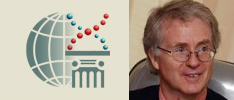 Ph.D. (Phil.) Cambridge University, U.K. President and provost, American University of Sovereign Nations, USA. Director, Eubios Ethics Institute, New Zealand, Japan and Thailand. Director, International Peace and Development Ethics Centre, and Senior Research Fellow, United Nations University, UNESCO. Relevant international figure of bioethics and international human rights. His work reaches global impact issues, such as peace and public health, environmental sustainability, indigenous populations, biolaw and health sciences, among others. He has authored 21 books, edited other 22, and published over 300 papers in international academic journals. He is member of more than 10 scientific committees of bioethics, biomedicine, genetics and environmental policies, as well as member of the International Committee of Bioethics, UNESCO.
Ph.D. (Phil.) Cambridge University, U.K. President and provost, American University of Sovereign Nations, USA. Director, Eubios Ethics Institute, New Zealand, Japan and Thailand. Director, International Peace and Development Ethics Centre, and Senior Research Fellow, United Nations University, UNESCO. Relevant international figure of bioethics and international human rights. His work reaches global impact issues, such as peace and public health, environmental sustainability, indigenous populations, biolaw and health sciences, among others. He has authored 21 books, edited other 22, and published over 300 papers in international academic journals. He is member of more than 10 scientific committees of bioethics, biomedicine, genetics and environmental policies, as well as member of the International Committee of Bioethics, UNESCO.
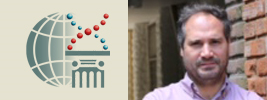 Director Observatory of Bioethics and Law, Universidad del Desarrollo. J.D., University of Chile, Ph.D. (Phil.), Universidad Complutense de Madrid, Spain. Master in Bioethics, Universidad Ramón Llull – Instituto Borja de Bioética, Barcelona, Spain. Bachelor in Philosophy, Gregorian University of Roma, Italy.
Director Observatory of Bioethics and Law, Universidad del Desarrollo. J.D., University of Chile, Ph.D. (Phil.), Universidad Complutense de Madrid, Spain. Master in Bioethics, Universidad Ramón Llull – Instituto Borja de Bioética, Barcelona, Spain. Bachelor in Philosophy, Gregorian University of Roma, Italy.
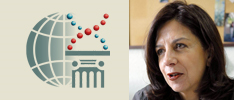 Research Professor, Institute for Juridical Research, UNAM, Mexico. J.D., UNAM, Mexico, Ph.D. (Law), Universidad Complutense de Madrid, Spain. She has published numerous books and papers, such as Derecho y Salud:Temas a Reflexionar, and Las Adopciones en México y algo más, Células Troncales: Aspectos científicos-filosóficos y jurídicos and has compiled and edited along with Carlos Romeo Casabona the book Código de Leyes Genéticas. Hacia un Instrumento Regional Interamericano sobre la Bioética.
Research Professor, Institute for Juridical Research, UNAM, Mexico. J.D., UNAM, Mexico, Ph.D. (Law), Universidad Complutense de Madrid, Spain. She has published numerous books and papers, such as Derecho y Salud:Temas a Reflexionar, and Las Adopciones en México y algo más, Células Troncales: Aspectos científicos-filosóficos y jurídicos and has compiled and edited along with Carlos Romeo Casabona the book Código de Leyes Genéticas. Hacia un Instrumento Regional Interamericano sobre la Bioética.
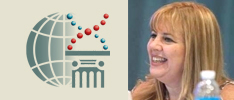 Director Observatory of Health, School of Law, University of Buenos Aires, Argentina. J.D. University of Buenos Aires. Specialist in Civil Law, University of Salamanca, Spain. She has been legal adviser at Garrahan and Posadas Hospitals, as well as at the Chamber of Deputies and the Ministry of Health, Argentina.
Director Observatory of Health, School of Law, University of Buenos Aires, Argentina. J.D. University of Buenos Aires. Specialist in Civil Law, University of Salamanca, Spain. She has been legal adviser at Garrahan and Posadas Hospitals, as well as at the Chamber of Deputies and the Ministry of Health, Argentina.
She is Adjunct Professor of Civil Law and Health Law at the University of Buenos Aires, and Visiting Professor at international universities, such as University La República, Uruguay, and the School of Public Health, Rio Grande do Sul, Brasil among others.
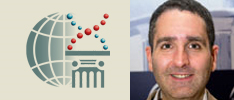 J.D., Ph.D. (Law), Universidad de Deusto (Bilbao). Professor of Criminal Law, Universidad de Las Palmas de Gran Canaria, and member of the Inter Universitary Chair of Law and Human Genome, Universidad de Deusto, Universidad del País Vasco, where he has taught and researched. He also is Honorary Professor at Universidad Católica Santa María de Arequipa (Peru), Universidad José Carlos Mariátegui, de Moquegua (Peru), and Universidad Nacional de San Agustín (UNSA), Arequipa (Peru).
J.D., Ph.D. (Law), Universidad de Deusto (Bilbao). Professor of Criminal Law, Universidad de Las Palmas de Gran Canaria, and member of the Inter Universitary Chair of Law and Human Genome, Universidad de Deusto, Universidad del País Vasco, where he has taught and researched. He also is Honorary Professor at Universidad Católica Santa María de Arequipa (Peru), Universidad José Carlos Mariátegui, de Moquegua (Peru), and Universidad Nacional de San Agustín (UNSA), Arequipa (Peru).
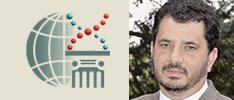 Director Institute of Bioethics, Pontificia Universidad Javeriana, Colombia. Ph.D. (Phil.) Universidad del País Vasco (“Doctor Europeus”) and M.D., Pontificia Universidad Javeriana. His research areas are: Genetics and Society, Anthropology and Technological Risks Policies, Technologies of Enhancement, Justice and Public Health, and Basics of Political Ethics and Bioethics, among others.
Director Institute of Bioethics, Pontificia Universidad Javeriana, Colombia. Ph.D. (Phil.) Universidad del País Vasco (“Doctor Europeus”) and M.D., Pontificia Universidad Javeriana. His research areas are: Genetics and Society, Anthropology and Technological Risks Policies, Technologies of Enhancement, Justice and Public Health, and Basics of Political Ethics and Bioethics, among others.
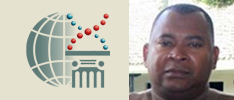 Director Graduate School, School of Law, University of Cauca, Colombia. President Ibero American Association of Practical Philosophy. B.Sc. (Phil.), and M.A. (Phil.), Universidad del Valle, Colombia. J.D., Universidad Santiago de Cali, Colombia. Ph.D. (Phil.), Universidad Autónoma del Estado de Morelos, Mexico. Ph.D. (Law), Centro de Investigación y Docencia del Estado de Morelos (CIDEM), Mexico. P.h.D. (Law and Globalization), Universidad Autónoma del Estado de Morelos, Mexico. Author, coauthor and editor of numerous books on political philosophy and law published in IberoAmerica.
Director Graduate School, School of Law, University of Cauca, Colombia. President Ibero American Association of Practical Philosophy. B.Sc. (Phil.), and M.A. (Phil.), Universidad del Valle, Colombia. J.D., Universidad Santiago de Cali, Colombia. Ph.D. (Phil.), Universidad Autónoma del Estado de Morelos, Mexico. Ph.D. (Law), Centro de Investigación y Docencia del Estado de Morelos (CIDEM), Mexico. P.h.D. (Law and Globalization), Universidad Autónoma del Estado de Morelos, Mexico. Author, coauthor and editor of numerous books on political philosophy and law published in IberoAmerica.
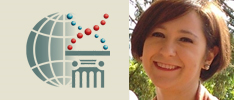 Lawyer, PhD in Comparative and European Legal Studies, University of Trento, Italy, and Post-doctoral fellow in European Studies, Faculty of Law, Political Sciences and Criminology, University of Liège, Belgium”. He has carried out advanced research at the Uehiro Centre for Practical Ethics, Oxford University, U.K., under the supervision of Julian Savulescu. Some of her publications are the book Synthetic biology between challenges and risks. A Legal Perspective, and the book chapters “Diritto e genetica delle popolazioni” (transl.:Population Genetics and the Law), in S.Rodotà, P.Zatti(eds.), “Trattato di Biodiritto: il Governo del Corpo” (transl.: Treaty of Biolaw: the Governance of the Body), vol.II, Giuffré, 2011, and “Dati genetici e forze di polizia: intersezioni europee” (transl.:Genetic data and police forces: European intersections), in L.S. Rossi (eds.), La protezione dei diritti fondamentali: Carta di Nizza e standards internazionali (transl.:The protection of fundamental rights: the European Charter of Nice and international standards).
Lawyer, PhD in Comparative and European Legal Studies, University of Trento, Italy, and Post-doctoral fellow in European Studies, Faculty of Law, Political Sciences and Criminology, University of Liège, Belgium”. He has carried out advanced research at the Uehiro Centre for Practical Ethics, Oxford University, U.K., under the supervision of Julian Savulescu. Some of her publications are the book Synthetic biology between challenges and risks. A Legal Perspective, and the book chapters “Diritto e genetica delle popolazioni” (transl.:Population Genetics and the Law), in S.Rodotà, P.Zatti(eds.), “Trattato di Biodiritto: il Governo del Corpo” (transl.: Treaty of Biolaw: the Governance of the Body), vol.II, Giuffré, 2011, and “Dati genetici e forze di polizia: intersezioni europee” (transl.:Genetic data and police forces: European intersections), in L.S. Rossi (eds.), La protezione dei diritti fondamentali: Carta di Nizza e standards internazionali (transl.:The protection of fundamental rights: the European Charter of Nice and international standards).
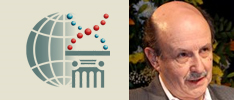 M.D. President National Academy of Medicine, Uruguay.
M.D. President National Academy of Medicine, Uruguay.
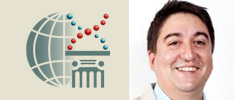 Secretary International Network of Biolaw. J.D., University of Chile. Master in Public Policies, FLACSO, Chile. Master in International Public Health, Instituto Carlos III-España. He has wide experience in regulatory issues and has worked over 10 years in Chilean government institutions. Currently, he is Coordinator of Regulatory and Legal Issues at Universidad del Desarrollo (Direction of Techonlogical Development, iCono, UDD), where he develops normative proposals for biomedical research regulation.
Secretary International Network of Biolaw. J.D., University of Chile. Master in Public Policies, FLACSO, Chile. Master in International Public Health, Instituto Carlos III-España. He has wide experience in regulatory issues and has worked over 10 years in Chilean government institutions. Currently, he is Coordinator of Regulatory and Legal Issues at Universidad del Desarrollo (Direction of Techonlogical Development, iCono, UDD), where he develops normative proposals for biomedical research regulation.
Honorary Members
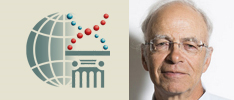 He is considered the most important and influential alive philosopher in the world. He is Ira W. DeCamp Professor of Bioethics, University Center for Human Values, Princeton University, USA, and Laureate Professor, University of Melbourne, Centre for Applied Philosophy and Public Ethics, School of Historical and Philosophical Studies, Australia. B.A. (Hons), University of Melbourne, 1967, M.A., University of Melbourne, 1969, and B. Phil., University of Oxford, 1971. He is author of paradigmatic books on moral philosophy: Animal Liberation (1975), Practical Ethics (1979), Applied Ethics (1986), Rethinking Life and Death (1994), and One World: Ethics and Globalization (2002), among many others. He has been distinguished and honored with numerous awards and prizes by prestigious universities. His ideas, as influential as controversial, are source of permanent inspiration and debate in the world.
He is considered the most important and influential alive philosopher in the world. He is Ira W. DeCamp Professor of Bioethics, University Center for Human Values, Princeton University, USA, and Laureate Professor, University of Melbourne, Centre for Applied Philosophy and Public Ethics, School of Historical and Philosophical Studies, Australia. B.A. (Hons), University of Melbourne, 1967, M.A., University of Melbourne, 1969, and B. Phil., University of Oxford, 1971. He is author of paradigmatic books on moral philosophy: Animal Liberation (1975), Practical Ethics (1979), Applied Ethics (1986), Rethinking Life and Death (1994), and One World: Ethics and Globalization (2002), among many others. He has been distinguished and honored with numerous awards and prizes by prestigious universities. His ideas, as influential as controversial, are source of permanent inspiration and debate in the world.

One of the most important bioethicists in the world. Profound intelligence, sharp style and controversial but well based ideas. Professor at University of Oxford, UK, he is also the Director of prestigious Oxford Uehiro Centre for Practical Ethics. He carries out last generation research on the ethics of genetic and biomedical practices. He is a former editor and current board member of the Journal of Medical Ethics (2001-2004 and 2011-2018), which is ranked as the No.1 journal in bioethics worldwide by Google Scholar Metrics as of 2013. In addition to his background in applied ethics and philosophy, he also has a background in medicine and completed his MBBS (Hons) at Monash University.
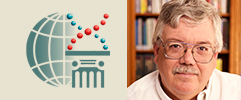
BA, Stanford University, and JD Yale Law School. He specializes in the ethical, legal, and social implications of new biomedical technologies, particularly those related to neuroscience, genetics, or stem cell research. He frequently serves as an advisor on California, national, and international policy issues. He is chair of California’s Human Stem Cell Research Advisory Committee, a member of the Advisory Council of the NIH’s National Institute for General Medical Sciences, a member of the Committee on Science, Technology, and Law of the National Academies, a member of the Neuroscience Forum of the Institute of Medicine, and served from 2007-2010 as co-director of the Law and Neuroscience Project, funded by the MacArthur Foundation. Professor Greely chairs the steering committee for the Stanford Center for Biomedical Ethics and directs both the law school’s Center for Law and the Biosciences and the Stanford Program in Neuroscience and Society. In 2007 Professor Greely was elected a fellow of the American Association for the Advancement of Science.
Before joining the Stanford Law School faculty in 1985, Greely was a partner at Tuttle & Taylor, served as a staff assistant to the secretary of the U.S. Department of Energy, and as special assistant to the general counsel of the U.S. Department of Defense. He served as a law clerk to Justice Potter Stewart of the U.S. Supreme Court and to Judge John Minor Wisdom of the Court of Appeals for the Fifth Circuit. Professor Greely is also a professor (by courtesy) of genetics at Stanford School of Medicine. He received the University’s Richard W. Lyman Prize in 2013.
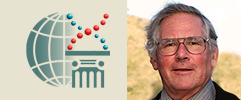 Ph.D., Philosophy, Harvard University, B.A.(M.A.), Philosophy and Psychology, Balliol College, Oxford University. He is Mary B. Saltonstall Professor of Population Ethics and Professor of Ethics and Population Health in the Department of Global Health and Population at the Harvard School of Public Health in Boston. Previously, and for 33 years, he had taught political philosophy at Tufts University in Medford, Massachusetts. At Tufts University, he was Goldthwaite Professor and Chair of the Philosophy Department, and at Tufts University School of Medicine, he was Professor of Medical Ethics (1969–2002).
Ph.D., Philosophy, Harvard University, B.A.(M.A.), Philosophy and Psychology, Balliol College, Oxford University. He is Mary B. Saltonstall Professor of Population Ethics and Professor of Ethics and Population Health in the Department of Global Health and Population at the Harvard School of Public Health in Boston. Previously, and for 33 years, he had taught political philosophy at Tufts University in Medford, Massachusetts. At Tufts University, he was Goldthwaite Professor and Chair of the Philosophy Department, and at Tufts University School of Medicine, he was Professor of Medical Ethics (1969–2002).
Professor Daniels is one of the most prominent international specialists in Population Ethics and Global Health and has profusely published on those matters. A member of the Institute of Medicine, a Fellow of the Hastings Center, a Founding Member of the National Academy of Social Insurance and of the International Society for Equity in Health, he has consulted with organizations, commissions, and governments in the U.S. and abroad on issues of justice and health policy, including for the United Nations, WHO, and the President’s Commission for the Study of Ethical Problems in Medicine. He served as a member of the Ethics Working Group of the Clinton White House Health Care Task Force (Spring 1993), as a member of the Public Health Service Expert Panel on Cost Effectiveness and Clinical Preventive Medicine, as a member of a National Academy of Social Insurance study panel on the social role of Medicare, and as a member of a Century Fund task force on Medicare reform. He served four years as a founding member of the National Cancer Policy Board, established by the Institute of Medicine and the Commission on the Life Sciences, and on the Advisory Board of the Open Society Foundation project on Medicine as a Profession, and on the International Bioethics Advisory Board of PAHO.
 One of the pioneers of European biolaw. He is founding Director of the Sheffield Institute of Biotechnological Law and Ethics (SIBLE) and is now a member of Durham CELLS (Centre for Ethics and Law in the Life Sciences). He is Professor of Law and Bioethics, and a former Head of Law School at Durham University. He is on the editorial board of Medical Law International. He was educated at the University of the Witwatersrand, Pembroke College, Cambridge, and completed his PhD at the University of East Anglia in 1975. Professor Beyleveld is the leading exponent of the moral theory of the late Alan Gewirth and, as such, his work has attracted extensive academic support and criticism. Over a long career he has collaborated with many academics, principally Professor Roger Brownsword, King’s College London and Professor Shaun Pattinson, Durham University.
One of the pioneers of European biolaw. He is founding Director of the Sheffield Institute of Biotechnological Law and Ethics (SIBLE) and is now a member of Durham CELLS (Centre for Ethics and Law in the Life Sciences). He is Professor of Law and Bioethics, and a former Head of Law School at Durham University. He is on the editorial board of Medical Law International. He was educated at the University of the Witwatersrand, Pembroke College, Cambridge, and completed his PhD at the University of East Anglia in 1975. Professor Beyleveld is the leading exponent of the moral theory of the late Alan Gewirth and, as such, his work has attracted extensive academic support and criticism. Over a long career he has collaborated with many academics, principally Professor Roger Brownsword, King’s College London and Professor Shaun Pattinson, Durham University.
 Professor Roger Brownsword, is also one of the founders of European biolaw. He is a graduate of the LSE, has been an academic lawyer for some 50 years, first at the University of Sheffield and then at King’s College London (where he was founding Director of TELOS in 2007). He was a Leverhulme Research Fellow in 2003-2004, a member of the Law panel for the UK RAE2008 and then for the Hong Kong RAE2014.He has published about 20 books, most recently Law, Technology and Society―Re-imagining the Regulatory Environment, and more than 250 chapters in books and articles. He is the founding general editor of Law, Innovation and Technology as well as being on the editorial board of the Modern Law Review, the International Journal of Law and Information Technology, and the Journal of Law and the Biosciences. From 2011-2015, he chaired UK Biobank’s Ethics and Governance Council; and he was a member of the Nuffield Council on Bioethics (2004-2010). He has been a member of working parties in the Academy of Medical Sciences and the Royal Society; and he has acted as a specialist adviser to parliamentary committees on stems cells and hybrid embryos.
Professor Roger Brownsword, is also one of the founders of European biolaw. He is a graduate of the LSE, has been an academic lawyer for some 50 years, first at the University of Sheffield and then at King’s College London (where he was founding Director of TELOS in 2007). He was a Leverhulme Research Fellow in 2003-2004, a member of the Law panel for the UK RAE2008 and then for the Hong Kong RAE2014.He has published about 20 books, most recently Law, Technology and Society―Re-imagining the Regulatory Environment, and more than 250 chapters in books and articles. He is the founding general editor of Law, Innovation and Technology as well as being on the editorial board of the Modern Law Review, the International Journal of Law and Information Technology, and the Journal of Law and the Biosciences. From 2011-2015, he chaired UK Biobank’s Ethics and Governance Council; and he was a member of the Nuffield Council on Bioethics (2004-2010). He has been a member of working parties in the Academy of Medical Sciences and the Royal Society; and he has acted as a specialist adviser to parliamentary committees on stems cells and hybrid embryos.
 She is Craig-Weaver Professor of Pediatrics, Professor of Law, Professor of Health Policy at Vanderbilt University, USA. She also is an internationally respected leader particularly in the field of law and genetics. Professor Clayton’s scholarship currently focuses on the translation of genomics to clinical care, and she currently is co-principal investigator of two grants, one involving a transdisciplinary Center for Excellence in ELSI Research addressing genomic privacy and another analyzing legal issues in liability, quality, privacy and access, and the clinical-research interface, all with the goal of developing more effective solutions. She has published two books and more than 175 scholarly articles and chapters in medical journals, interdisciplinary journals and law journals on the intersection of law, medicine and public health.
She is Craig-Weaver Professor of Pediatrics, Professor of Law, Professor of Health Policy at Vanderbilt University, USA. She also is an internationally respected leader particularly in the field of law and genetics. Professor Clayton’s scholarship currently focuses on the translation of genomics to clinical care, and she currently is co-principal investigator of two grants, one involving a transdisciplinary Center for Excellence in ELSI Research addressing genomic privacy and another analyzing legal issues in liability, quality, privacy and access, and the clinical-research interface, all with the goal of developing more effective solutions. She has published two books and more than 175 scholarly articles and chapters in medical journals, interdisciplinary journals and law journals on the intersection of law, medicine and public health.
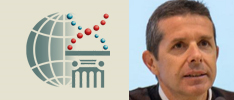 He is Professor of Comparative Constitutional Law, Biolaw and Bioethics, School of Law and Centre for Integrative Biology (Cibio), University of Trento, and Professor of Bioethics, School of Medicine, University of Verona. President of Ethical Committee for Health Activity (APSS), Trento. J.D., Ph.D. (Law), University of Trento. He is author and editor of numerous international books on bioethical and biojuridical issues.
He is Professor of Comparative Constitutional Law, Biolaw and Bioethics, School of Law and Centre for Integrative Biology (Cibio), University of Trento, and Professor of Bioethics, School of Medicine, University of Verona. President of Ethical Committee for Health Activity (APSS), Trento. J.D., Ph.D. (Law), University of Trento. He is author and editor of numerous international books on bioethical and biojuridical issues.
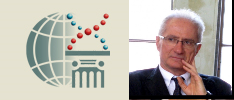 One of the most important Italian biojurists. He is one of the founders and current Scientific Director of the European Center for Law, Science and new Technologies (ECLT), at the University of Pavia (I). Professor of Law, Science and New Technologies at the Department of Law, University of Pavia, and at the Institute for Advanced Study of Pavia (IUSS). He serves also as President of the First Chamber at the Court of Appeal of Milan. Santosuosso has served in several ad hoc committee appointed by the Italian government on science and law issues.
One of the most important Italian biojurists. He is one of the founders and current Scientific Director of the European Center for Law, Science and new Technologies (ECLT), at the University of Pavia (I). Professor of Law, Science and New Technologies at the Department of Law, University of Pavia, and at the Institute for Advanced Study of Pavia (IUSS). He serves also as President of the First Chamber at the Court of Appeal of Milan. Santosuosso has served in several ad hoc committee appointed by the Italian government on science and law issues.
 Relevant expert of European bioethics and biolaw. Judge, Court of appeal, Paris. Secretary General, International Association of Law, Ethics and Science (1989-). He has been professor of law at universities of Paris and Poitiers. French representative in UNESCO Intergovernmental Bioethics Committee, and General Editor of the International Journal of Bioethics and Law, and the Health and Society Review. His contribution to the birth of biolaw in Europe as well as its deepening and development has been remarkable.
Relevant expert of European bioethics and biolaw. Judge, Court of appeal, Paris. Secretary General, International Association of Law, Ethics and Science (1989-). He has been professor of law at universities of Paris and Poitiers. French representative in UNESCO Intergovernmental Bioethics Committee, and General Editor of the International Journal of Bioethics and Law, and the Health and Society Review. His contribution to the birth of biolaw in Europe as well as its deepening and development has been remarkable.
 He is Associate Professor at the Faculty of Law, University of Zurich (Switzerland). He is also Research Fellow at the University’s Institute of Biomedical Ethics and Medical History. Originally from Argentina, he holds doctoral degrees in law from the Universities of Buenos Aires (1991) and Paris XII (1994), both on topics related to the ethical and legal aspects of assisted reproductive technologies. Between 1999 and 2005 he conducted various research projects relating to global bioethics, human dignity, and human rights at the Laval University (Quebec, Canada), and at the Universities of Göttingen and Tübingen, in Germany. From 1998 to 2005 he served as a member of the International Bioethics Committee (IBC) of UNESCO, and participated in this capacity in the drafting of the International Declaration on Human Genetic Data (2003)and of the Universal Declaration on Bioethics and Human Rights (2005)
He is Associate Professor at the Faculty of Law, University of Zurich (Switzerland). He is also Research Fellow at the University’s Institute of Biomedical Ethics and Medical History. Originally from Argentina, he holds doctoral degrees in law from the Universities of Buenos Aires (1991) and Paris XII (1994), both on topics related to the ethical and legal aspects of assisted reproductive technologies. Between 1999 and 2005 he conducted various research projects relating to global bioethics, human dignity, and human rights at the Laval University (Quebec, Canada), and at the Universities of Göttingen and Tübingen, in Germany. From 1998 to 2005 he served as a member of the International Bioethics Committee (IBC) of UNESCO, and participated in this capacity in the drafting of the International Declaration on Human Genetic Data (2003)and of the Universal Declaration on Bioethics and Human Rights (2005)
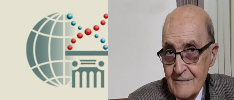 Argentine jurist, specialized in philosophy of law, private international law and community or regional integration law. He is the main exponent at present of the Trialist Theory of the legal world, known as trialism. He served as Director of the Postgraduate Department of the Faculty of Law at the University of Buenos Aires until 2009, Senior Researcher of Conicet (National Council for Scientific and Technical Research), and President of the Foundation for Legal Research. He obtained the degrees of Lawyer and Bachelor of Political and Diplomatic Sciences, to then postgraduate as Doctor of Legal and Social Sciences in 1966 and Doctor of Political and Diplomatic Sciences in 1969, always at the National University of Rosario. He has had an extensive career as a university professor, as well as a prolific career as a researcher.
Argentine jurist, specialized in philosophy of law, private international law and community or regional integration law. He is the main exponent at present of the Trialist Theory of the legal world, known as trialism. He served as Director of the Postgraduate Department of the Faculty of Law at the University of Buenos Aires until 2009, Senior Researcher of Conicet (National Council for Scientific and Technical Research), and President of the Foundation for Legal Research. He obtained the degrees of Lawyer and Bachelor of Political and Diplomatic Sciences, to then postgraduate as Doctor of Legal and Social Sciences in 1966 and Doctor of Political and Diplomatic Sciences in 1969, always at the National University of Rosario. He has had an extensive career as a university professor, as well as a prolific career as a researcher.
Numerary Members
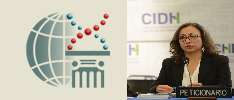 Associate Professor of Philosophy and Women`s Studies at the Universidad de Costa Rica, where she teaches Bioethics, Medical Ethics and Feminist Topics. She has published articles about the ethics of genetic patents, obstetric power/violence, ecofeminism, religious fundamentalism and sexual rights. As part of an alliance between the Center for Justice and International Law (CEJIL) and the Women’s Studies Research Center (CIEM) at the University of Costa Rica, she presented the results of her research on obstetric violence in Costa Rica, in a thematic audience for the Inter-American Commission on Human Rights (IHRC). She has been working with Dr. Steven Miles, professor emeritus at the University of Minnesota, in the translation to Spanish of his book, Doctors who Torture: The Pursue of Justice, that will be published in 2020, with the Universidad de Costa Rica press.
Associate Professor of Philosophy and Women`s Studies at the Universidad de Costa Rica, where she teaches Bioethics, Medical Ethics and Feminist Topics. She has published articles about the ethics of genetic patents, obstetric power/violence, ecofeminism, religious fundamentalism and sexual rights. As part of an alliance between the Center for Justice and International Law (CEJIL) and the Women’s Studies Research Center (CIEM) at the University of Costa Rica, she presented the results of her research on obstetric violence in Costa Rica, in a thematic audience for the Inter-American Commission on Human Rights (IHRC). She has been working with Dr. Steven Miles, professor emeritus at the University of Minnesota, in the translation to Spanish of his book, Doctors who Torture: The Pursue of Justice, that will be published in 2020, with the Universidad de Costa Rica press.
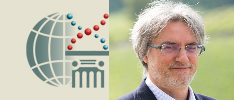 He holds a PhD in law and a PhD in philosophy and a bachelor in economy. He works at the University of the Basque Country, Department of Public Law, Spain. His expertise is related to bioethics and biolaw. He has participated in various EU funded research projects devoted to these issues. He was part of two COST actions, published more than 75 papers and book chapters and written five books on ethics, laws and political philosophy.
He holds a PhD in law and a PhD in philosophy and a bachelor in economy. He works at the University of the Basque Country, Department of Public Law, Spain. His expertise is related to bioethics and biolaw. He has participated in various EU funded research projects devoted to these issues. He was part of two COST actions, published more than 75 papers and book chapters and written five books on ethics, laws and political philosophy.
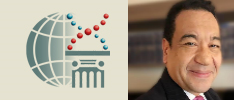 PhD in Philosophy and PhD canonical in philosophy. Master in Law, University the Basque Country, Spain. Member, Colombian National Academy of Medicine (Bioethics). Member, International court Administration. Member, Society and Law Network (Argentina). Researcher at Saint Thomas University. (Colombia). Author of several publications on law and biolaw in Italy, Mexico, and Brazil, among others.
PhD in Philosophy and PhD canonical in philosophy. Master in Law, University the Basque Country, Spain. Member, Colombian National Academy of Medicine (Bioethics). Member, International court Administration. Member, Society and Law Network (Argentina). Researcher at Saint Thomas University. (Colombia). Author of several publications on law and biolaw in Italy, Mexico, and Brazil, among others.
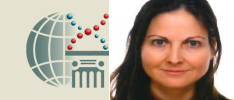 She holds a PhD in computer science (Informatics) aplied to law from the University of La Coruña, Spain. She is a researcher at the Department of Public Law and at the prestigious Chair of Law and the Human Genome at the University of the Basque Country, Spain. She has researched and published in the fields of computer law and biolaw.
She holds a PhD in computer science (Informatics) aplied to law from the University of La Coruña, Spain. She is a researcher at the Department of Public Law and at the prestigious Chair of Law and the Human Genome at the University of the Basque Country, Spain. She has researched and published in the fields of computer law and biolaw.
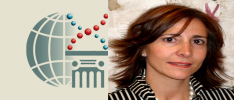 She holds a PhD in law from the University of Deusto, Spain. She is a researcher at the prestigious Chair of Law and the Human Genome at the University of the Basque Country, and full professor of constitutional law at the University of Deusto, Spain. She has researched and published in the fields of computer law and biolaw
She holds a PhD in law from the University of Deusto, Spain. She is a researcher at the prestigious Chair of Law and the Human Genome at the University of the Basque Country, and full professor of constitutional law at the University of Deusto, Spain. She has researched and published in the fields of computer law and biolaw
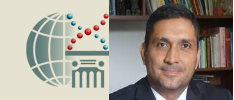 Lawyer from the University of Cauca, Colombia; Specialist in Criminal Law and Criminology from the same university; Master in Human Rights and Democratization from Externado University, Colombia, and Carlos III University of Madrid – Spain; PhD student in Criminal Law from the University of Buenos Aires-Argentina; Professor of the Department of Criminal Law at the University of Cauca. Colombia; President of the Ethics Committee ate the same university. He teaches and researches on topics related to biolaw and criminal law.
Lawyer from the University of Cauca, Colombia; Specialist in Criminal Law and Criminology from the same university; Master in Human Rights and Democratization from Externado University, Colombia, and Carlos III University of Madrid – Spain; PhD student in Criminal Law from the University of Buenos Aires-Argentina; Professor of the Department of Criminal Law at the University of Cauca. Colombia; President of the Ethics Committee ate the same university. He teaches and researches on topics related to biolaw and criminal law.
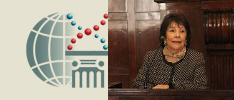 She is a lawyer from the University of Buenos Aires, Argentina, and professor in the Area of Human Rights and Bioethics in Masters in Public Health, at the same university. She is also the Postgraduate Director of the University of Buenos Aires and the Buenos Aires Bar Association. Her research and publications focus on biolegal issues.
She is a lawyer from the University of Buenos Aires, Argentina, and professor in the Area of Human Rights and Bioethics in Masters in Public Health, at the same university. She is also the Postgraduate Director of the University of Buenos Aires and the Buenos Aires Bar Association. Her research and publications focus on biolegal issues.
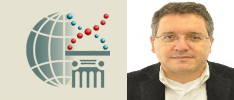 Philosopher from the Universidad Pontificia Bolivariana, Medellín-Colombia; Lawyer from the University of Medellín-Colombia; Specialist in Political Studies from Eafit University, Medellín-Colombia; Master in Educational Technology and Digital Competences from UNIR-Spain University; PhD. (c) in Law from the University of Buenos Aires-Argentina; Registered researcher in the National System of Science, Technology and Innovation of Colombia; Member of the Bioethics Chapter of the International Institute of Human Rights for the Americas; Researcher and professor in the field of the relationships between biopolitics and civil and family law; Coordinator of the accredited law program at the Technological Institute, Antioquia IU, Medellín-Colombia; Academic peer registered in the Peer Bank System of the Ministry of Education of Colombia.
Philosopher from the Universidad Pontificia Bolivariana, Medellín-Colombia; Lawyer from the University of Medellín-Colombia; Specialist in Political Studies from Eafit University, Medellín-Colombia; Master in Educational Technology and Digital Competences from UNIR-Spain University; PhD. (c) in Law from the University of Buenos Aires-Argentina; Registered researcher in the National System of Science, Technology and Innovation of Colombia; Member of the Bioethics Chapter of the International Institute of Human Rights for the Americas; Researcher and professor in the field of the relationships between biopolitics and civil and family law; Coordinator of the accredited law program at the Technological Institute, Antioquia IU, Medellín-Colombia; Academic peer registered in the Peer Bank System of the Ministry of Education of Colombia.
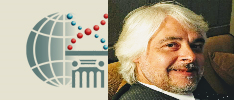 Judge of Commodore Rivadavia Court of Appeals. Chubut, Argentinian patagony. Member of the Latin American Network of Judges. Lawyer, specialized in Family Law, National University of Rosario. Santa Fe. Argentina. Full-time professor of Family Law at the School of Legal Sciences at the National University of Patagonia San Juan Bosco. Professor (graduate level) at the University of Buenos Aires, Argentina.
Judge of Commodore Rivadavia Court of Appeals. Chubut, Argentinian patagony. Member of the Latin American Network of Judges. Lawyer, specialized in Family Law, National University of Rosario. Santa Fe. Argentina. Full-time professor of Family Law at the School of Legal Sciences at the National University of Patagonia San Juan Bosco. Professor (graduate level) at the University of Buenos Aires, Argentina.
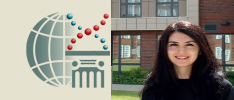 Marianna holds a law degree from the Aristotle University of Thessaloniki (Greece), a Master’s degree (Advanced Master in Legal Sciences) from the Pompeu Fabra University in Barcelona (Spain) and a Ph.D. in law from Durham University (UK). Her doctoral thesis is entitled ‘Surrogacy and the European Convention on Human Rights’. Her research was funded by the Modern Law Review journal and she is also recipient of the Helen Reece Award. Marianna is a Fellow of the Higher Education Academy of UK (FHEA) and, in October 2020, she will join Durham Law School as a Teaching Fellow in Medical Law and Ethics. Her principal areas of research include medical law, medical ethics, human rights and, in particular, reproductive rights.
Marianna holds a law degree from the Aristotle University of Thessaloniki (Greece), a Master’s degree (Advanced Master in Legal Sciences) from the Pompeu Fabra University in Barcelona (Spain) and a Ph.D. in law from Durham University (UK). Her doctoral thesis is entitled ‘Surrogacy and the European Convention on Human Rights’. Her research was funded by the Modern Law Review journal and she is also recipient of the Helen Reece Award. Marianna is a Fellow of the Higher Education Academy of UK (FHEA) and, in October 2020, she will join Durham Law School as a Teaching Fellow in Medical Law and Ethics. Her principal areas of research include medical law, medical ethics, human rights and, in particular, reproductive rights.
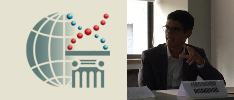 He is a lawyer of Trani’s Bar (Italy). Currently, he is a Ph.D. Student in Human Rights in the University of Palermo (Italy) in co-operational regime with the University of Valencia (Spain). Author of a monograp about germ-line gene editing (Terapia genica. Un’indagine biogiuridica, 2018) and of several articles with a biojuridical perspective in relevant juridical magazines, such as Sociologia del Diritto, Ragion Pratica and Rivista Critica del Diritto Privato. In april 2017, he did also an internship in the Centre of Biomedical Ethics and Law (CBMER) of K.U. Leuven (Belgium).
He is a lawyer of Trani’s Bar (Italy). Currently, he is a Ph.D. Student in Human Rights in the University of Palermo (Italy) in co-operational regime with the University of Valencia (Spain). Author of a monograp about germ-line gene editing (Terapia genica. Un’indagine biogiuridica, 2018) and of several articles with a biojuridical perspective in relevant juridical magazines, such as Sociologia del Diritto, Ragion Pratica and Rivista Critica del Diritto Privato. In april 2017, he did also an internship in the Centre of Biomedical Ethics and Law (CBMER) of K.U. Leuven (Belgium).
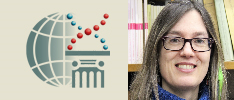 PhD in Civil Law from the Autonomous University of Madrid. She is the author of two books, as well as various articles on medical responsibility, on preimplantation and prenatal diagnosis and on embryonic selection in the framework of assisted reproduction techniques. Her latest work, Preimplantation Genetic Diagnosis and Medical Liability for False Negatives, has been awarded in 2018 with the V National Prize for Health Law, Spain.
PhD in Civil Law from the Autonomous University of Madrid. She is the author of two books, as well as various articles on medical responsibility, on preimplantation and prenatal diagnosis and on embryonic selection in the framework of assisted reproduction techniques. Her latest work, Preimplantation Genetic Diagnosis and Medical Liability for False Negatives, has been awarded in 2018 with the V National Prize for Health Law, Spain.
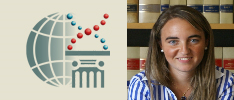 Law Degree, University of Deusto; Master in Fundamental Rights and Public Powers, UPV and Doctorate in Law from the University of Deusto, Pontificia Comillas-ICADE and Ramón Llull-ESADE. Thesis «Las respuestas del Derecho a las nuevas manifestaciones de dopaje en el deporte» directed by Prof. ROMEO CASABONA and Profa. EMALDI CIRIÓN, distinguished with International Mention, Outstanding Cum Laude unanimously and XVI Legal Prize of the Andalusian Association of Sports Law. Researcher since December 2009 in the Research Group Chair in Law and the Human Genome UPV, Group A and qualified as «Excellent» by the Basque Government. Currently, Postdoctoral Researcher Juan de la Cierva of the Ministry of Science, Innovation and Universities in the Chair in Law and the Human Genome R.G., UPV. The researcher obtained the 1st Position in the list of Spain, with the highest score. Tasks within the group: Coordinator «Law and the Human Genome Review. Genetics, Biotechnology and Advanced Medicine» edited by Chair in Law and the Human Genome R.G. – Ed. Dykinson, Journal indexed in SCOPUS, MEDLINE [PubMed], IN-RECJ, RESH, MIAR, LATINDEX, ISOC, DIALNET, DICE, SJR/ SCIMAGO, SHERPA/RoMEO, DULCINEA. Coordinator of Monographs edited by Chair in Law and the Human Genome R.G., – Ed. Comares.
Law Degree, University of Deusto; Master in Fundamental Rights and Public Powers, UPV and Doctorate in Law from the University of Deusto, Pontificia Comillas-ICADE and Ramón Llull-ESADE. Thesis «Las respuestas del Derecho a las nuevas manifestaciones de dopaje en el deporte» directed by Prof. ROMEO CASABONA and Profa. EMALDI CIRIÓN, distinguished with International Mention, Outstanding Cum Laude unanimously and XVI Legal Prize of the Andalusian Association of Sports Law. Researcher since December 2009 in the Research Group Chair in Law and the Human Genome UPV, Group A and qualified as «Excellent» by the Basque Government. Currently, Postdoctoral Researcher Juan de la Cierva of the Ministry of Science, Innovation and Universities in the Chair in Law and the Human Genome R.G., UPV. The researcher obtained the 1st Position in the list of Spain, with the highest score. Tasks within the group: Coordinator «Law and the Human Genome Review. Genetics, Biotechnology and Advanced Medicine» edited by Chair in Law and the Human Genome R.G. – Ed. Dykinson, Journal indexed in SCOPUS, MEDLINE [PubMed], IN-RECJ, RESH, MIAR, LATINDEX, ISOC, DIALNET, DICE, SJR/ SCIMAGO, SHERPA/RoMEO, DULCINEA. Coordinator of Monographs edited by Chair in Law and the Human Genome R.G., – Ed. Comares.
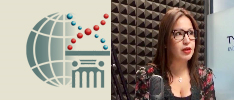 PhD in Bioethics and Medical Jurisprudence from the University of Manchester, UK. She is ‘A’ full-time researcher at the UNAM Institute for Legal Research, Mexico. In 2008, she received the Alfonso Caso silver medal (2008) from UNAM. Since 2013, she has been part of the SNI National System of Researchers, Level 1, CONACyT. Academic Coordinator of the IIJ Diploma in Bioethics, Health and Biolaw, since its first generation in 2015 to date. In 2019 she obtained the medal Sor Juan Inés de la Cruz, UNAM.
PhD in Bioethics and Medical Jurisprudence from the University of Manchester, UK. She is ‘A’ full-time researcher at the UNAM Institute for Legal Research, Mexico. In 2008, she received the Alfonso Caso silver medal (2008) from UNAM. Since 2013, she has been part of the SNI National System of Researchers, Level 1, CONACyT. Academic Coordinator of the IIJ Diploma in Bioethics, Health and Biolaw, since its first generation in 2015 to date. In 2019 she obtained the medal Sor Juan Inés de la Cruz, UNAM.
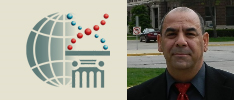 PhD in Law, member of the National System of Researchers, Mexico. Research professor at the Autonomous University of Nuevo León (Mexico), expert in bioethical and bio-legal issues, lawyer for more than three decades, member of the College of Bioethics, AC, and the National Association of Professors of Private International Law. Author of books, book chapters and peer-reviewed articles published in national and international journals.
PhD in Law, member of the National System of Researchers, Mexico. Research professor at the Autonomous University of Nuevo León (Mexico), expert in bioethical and bio-legal issues, lawyer for more than three decades, member of the College of Bioethics, AC, and the National Association of Professors of Private International Law. Author of books, book chapters and peer-reviewed articles published in national and international journals.
 Distinguished Emeritus Professor of Law and Director of the Centre for Law and Genetics at the University of Tasmania, and a fellow of the Australian Academy of Law. Her research intersects law, ethics, health and medicine. She has postgraduate qualifications in science and law and uses this expertise in her research. Distinguished Professor Nicol’s contributions to health and medicine are recognised in national policy arenas, through such appointments as Chair, NHMRC Embryo Research Licensing Committee; member, Mitochondrial Donation Expert Working Committee; member, Genomics Mission Expert Advisory Committee; and member, Australian Advisory Council on Medicinal Use of Cannabis. Professor Nicol began her academic career as a scientist, receiving a PhD from Dalhousie University in Canada in 1987. Her research interests at the time focused on cell and developmental biology, with particular focus on the development of simple nervous systems. Dianne subsequently re-trained in law, graduating with a research-based LLM in 1997. The title of her thesis was: Patenting of Human Genetic Material in Australia. She commenced work as an academic at the University of Tasmania in 2000 and was appointed as Professor in 2009 and Distinguished Professor in 2019.
Distinguished Emeritus Professor of Law and Director of the Centre for Law and Genetics at the University of Tasmania, and a fellow of the Australian Academy of Law. Her research intersects law, ethics, health and medicine. She has postgraduate qualifications in science and law and uses this expertise in her research. Distinguished Professor Nicol’s contributions to health and medicine are recognised in national policy arenas, through such appointments as Chair, NHMRC Embryo Research Licensing Committee; member, Mitochondrial Donation Expert Working Committee; member, Genomics Mission Expert Advisory Committee; and member, Australian Advisory Council on Medicinal Use of Cannabis. Professor Nicol began her academic career as a scientist, receiving a PhD from Dalhousie University in Canada in 1987. Her research interests at the time focused on cell and developmental biology, with particular focus on the development of simple nervous systems. Dianne subsequently re-trained in law, graduating with a research-based LLM in 1997. The title of her thesis was: Patenting of Human Genetic Material in Australia. She commenced work as an academic at the University of Tasmania in 2000 and was appointed as Professor in 2009 and Distinguished Professor in 2019.
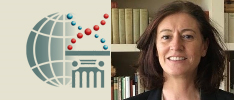 Doctor in Law. Permanent researcher at the Faculty of Law of the University of the Basque Country and member of the Chair in Law and the Human Genome. She has participated in national and international research projects as an expert in bio-law, including, more recently, as lines of research, bigdata and artificial intelligence. She participates in various institutions related to the study or evaluation of the ethical and legal aspects of biomedicine. Among others: Ethics Committee of the Carlos III Health Institute (Ministry of Science and Innovation); and ELSI working group of the 1+Million Genome initiative (European Commission).
Doctor in Law. Permanent researcher at the Faculty of Law of the University of the Basque Country and member of the Chair in Law and the Human Genome. She has participated in national and international research projects as an expert in bio-law, including, more recently, as lines of research, bigdata and artificial intelligence. She participates in various institutions related to the study or evaluation of the ethical and legal aspects of biomedicine. Among others: Ethics Committee of the Carlos III Health Institute (Ministry of Science and Innovation); and ELSI working group of the 1+Million Genome initiative (European Commission).
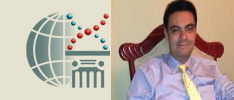 He is a lawyer from the University of Cauca, Colombia; Master in Law from the Externado University, Colombia, and Ph.D. (c) in Law from the same university. He is a research professor at the University of Cauca, where he teaches in areas such as biolaw, civil responsibility, constitutional law, administrative law, and bioethics.
He is a lawyer from the University of Cauca, Colombia; Master in Law from the Externado University, Colombia, and Ph.D. (c) in Law from the same university. He is a research professor at the University of Cauca, where he teaches in areas such as biolaw, civil responsibility, constitutional law, administrative law, and bioethics.
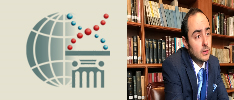 Member International Network of Biolaw; Member of the Colombian Institute of Bioethical Studies; Member of the Center for Colombian Studies. Founder and Editorial Director of Colombian Journal of Hispanic Studies (Spain-Colombia). Academic Director Center for Integral Human Development, Sergio Arboleda University, Colombia. PosDoc and Ph.D. in Bioethics (Summa cum laude), El Bosque University, Colombia; Master in Teaching and University Research (Summa cum laude), Sergio Arboleda University; Specialist in Teaching and University Research (summa cum laude), Sergio Arboleda University; Lawyer, Sergio Arboleda University; Graduated from Major Studies of Philosophy, Humanities and Letters, Sergio Arboleda University.
Member International Network of Biolaw; Member of the Colombian Institute of Bioethical Studies; Member of the Center for Colombian Studies. Founder and Editorial Director of Colombian Journal of Hispanic Studies (Spain-Colombia). Academic Director Center for Integral Human Development, Sergio Arboleda University, Colombia. PosDoc and Ph.D. in Bioethics (Summa cum laude), El Bosque University, Colombia; Master in Teaching and University Research (Summa cum laude), Sergio Arboleda University; Specialist in Teaching and University Research (summa cum laude), Sergio Arboleda University; Lawyer, Sergio Arboleda University; Graduated from Major Studies of Philosophy, Humanities and Letters, Sergio Arboleda University.
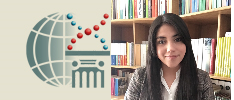 She is a lawyer from the University of Cauca (Colombia), Master in Law from the University of Chile with a mention in public law, and graduated with Summa Cum Laude recognition for the research work entitled Biolaw and responsibility of the State for failures in the application of genetic techniques; Ph.D.(c) in Law from the Externado University, Colombia the University of the Basque Country,Spain, where she is conducting a research called Genetic Self-Determination: A New Constitutional Guarantee for the Consecration of the Right to Genetic Enhancement. Author of the book Daño a la salud and several articles published in specialized journals.
She is a lawyer from the University of Cauca (Colombia), Master in Law from the University of Chile with a mention in public law, and graduated with Summa Cum Laude recognition for the research work entitled Biolaw and responsibility of the State for failures in the application of genetic techniques; Ph.D.(c) in Law from the Externado University, Colombia the University of the Basque Country,Spain, where she is conducting a research called Genetic Self-Determination: A New Constitutional Guarantee for the Consecration of the Right to Genetic Enhancement. Author of the book Daño a la salud and several articles published in specialized journals.
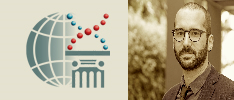 Born in Vicenza, Italy (1985). Research professor in Criminal Law and Director of the Master in Criminal and Criminal Procedural Law, Faculty of Law, Andrés Bello University, in Santiago, Chile. Law Degree and Master’s degree in Law (University of Trento, Italy, 2011), Ph.D. in Comparative and European Legal Studies, University of Trento, and PhD in Law, University of the Basque Country (2015). Post-doc Researcher in Criminal Law and Biolaw at Inter-University “Chair in Law and the Human Genome”, University of the Basque Country, until 2016, external collaborator of the Research Group from 2017. Areas of competence: Criminal Law Theory, Medical Law, Biolaw, Science and Technology Studies: Scientific societies: “Instituto de Ciencias Penales”, Chile, from 2019; International Network of BioLaw. Distinguished by the “Ettore Gallo” award (X Edition, 2016), established by the “Istituto Storico della Resistenza e dell’Età Contemporanea della Provincia di Vicenza” (ISTREVI); “Best PhDs of the Academic Year 2013-2014”, established by the University of Trento (2016).
Born in Vicenza, Italy (1985). Research professor in Criminal Law and Director of the Master in Criminal and Criminal Procedural Law, Faculty of Law, Andrés Bello University, in Santiago, Chile. Law Degree and Master’s degree in Law (University of Trento, Italy, 2011), Ph.D. in Comparative and European Legal Studies, University of Trento, and PhD in Law, University of the Basque Country (2015). Post-doc Researcher in Criminal Law and Biolaw at Inter-University “Chair in Law and the Human Genome”, University of the Basque Country, until 2016, external collaborator of the Research Group from 2017. Areas of competence: Criminal Law Theory, Medical Law, Biolaw, Science and Technology Studies: Scientific societies: “Instituto de Ciencias Penales”, Chile, from 2019; International Network of BioLaw. Distinguished by the “Ettore Gallo” award (X Edition, 2016), established by the “Istituto Storico della Resistenza e dell’Età Contemporanea della Provincia di Vicenza” (ISTREVI); “Best PhDs of the Academic Year 2013-2014”, established by the University of Trento (2016).
PhD in Human Rights from the University of Salamanca, a Master’s Degree in Human Rights from the same university, and a Law Degree from the University of Coimbra, Portugal. He has been visiting professor at the University of Las Palmas de Gran Canaria, Spain, Faculty of Legal Sciences ULPGC (Erasmus Program), and Postdoctoral Researcher in Human Rights at the University of Salamanca, Spain. He is also an international consultant for the Constitutional Law Commission of the Brazilian Bar Association.
 Senior lecturer in health law in France at Jean Moulin Lyon 3 University (IFROSS), accredited to supervise research. His work focuses on major developments in health law (bioethical issues, medical consumerism, territorial health inequalities, pharmaceutical monopoly, patient representation, funeral care). He is also General Secretary of the French Association of Health Law (AFDS). He was Associate Dean of the Faculty of Law of the French University in Armenia (2016-2020) and Vice President for International Relations of the Jean Moulin Lyon 3 University (2017-2020). He is the author of numerous articles and individual or collective works, including the Dictionary of Health Law, published by LexisNexis.
Senior lecturer in health law in France at Jean Moulin Lyon 3 University (IFROSS), accredited to supervise research. His work focuses on major developments in health law (bioethical issues, medical consumerism, territorial health inequalities, pharmaceutical monopoly, patient representation, funeral care). He is also General Secretary of the French Association of Health Law (AFDS). He was Associate Dean of the Faculty of Law of the French University in Armenia (2016-2020) and Vice President for International Relations of the Jean Moulin Lyon 3 University (2017-2020). He is the author of numerous articles and individual or collective works, including the Dictionary of Health Law, published by LexisNexis.
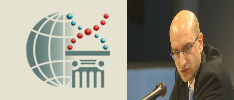 (Dr. iur. Dr. med.). He is currently Associate Professor (Profesor Titular) of Criminal Law at the University of Zaragoza having obtained the accreditation as Full Professor (Catedrático) by ANECA (Spanish Accreditation Agency) in December 2019. In the past, he has been Professor of Criminal Law at the University of the Basque Country and in the Center of Vergara at the National University of Distance Education (UNED).
(Dr. iur. Dr. med.). He is currently Associate Professor (Profesor Titular) of Criminal Law at the University of Zaragoza having obtained the accreditation as Full Professor (Catedrático) by ANECA (Spanish Accreditation Agency) in December 2019. In the past, he has been Professor of Criminal Law at the University of the Basque Country and in the Center of Vergara at the National University of Distance Education (UNED).
His researches have been directed to topics related to the Dogmatic of Criminal Law and DNA testing and the Criminal justice system. Other research topics are Medical Law and Law and the Human Genome (xenotransplantation, stem cell research, transgenesis and law, precautionary principle and biotechnologies).
He has received the Extraordinary Awards for Doctorate in Law (2005) and the José Cerezo Mir Award for best communication in the Congress of Criminal Law of the University of Zaragoza (2000). He is an Honorary Professor at the National University of San Agustín de Arequipa (Peru) and at the José Carlos Mariategui University in Moquegua (Peru).
International Network of Biolaw. All Rights reserved 2019.
